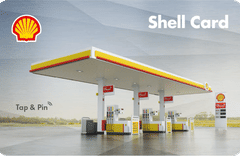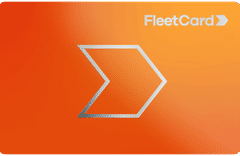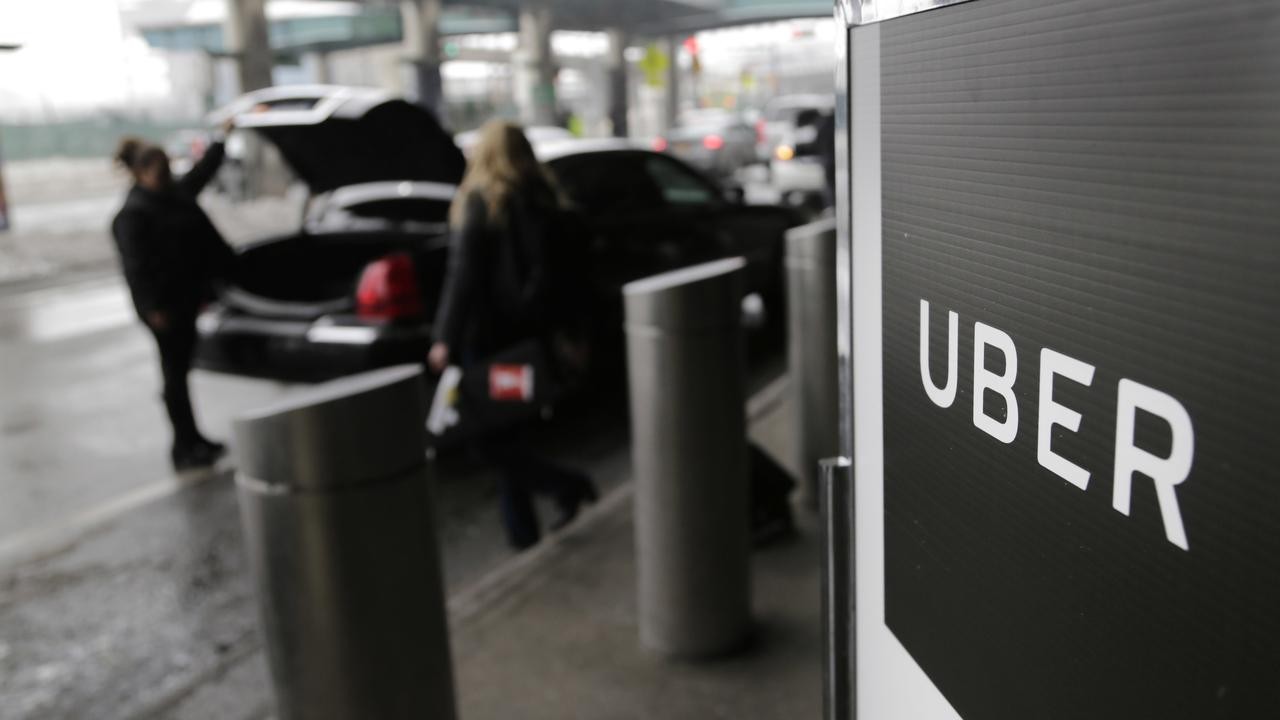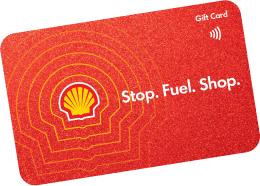As an Uber or other rideshare driver, you will use a lot of fuel. You may have quite a few questions about how fuel expenses work as a rideshare share driver, including whether Uber pays for your fuel and if you can claim fuel and other related vehicle expenses on your tax return.
Well, we’ve done the research and in this article, we will be answering some FAQs we get from Uber and other rideshare drivers in relation to fuel.
One common question we get is “can I get a fuel card as a rideshare driver?”
There are a few considerations when buying your own fuel card if you drive for Uber or other rideshare apps. Let’s take a look.
Are Uber Drivers Eligible for Fuel Cards?
Before we answer this – let’s quickly talk about what a fuel card is. At its core, fuel cards make managing your business fuel simple. A fuel card works like a credit card in many ways. It makes it easy to pay for and keep track of your business fuel expenses. It means your employees can pay for fuel without cash and without needing to submit a fuel reclaim. The fuel card is attached to an account and when an employee fills up, the cost is charged to that account.
The amount owing will then be deducted from your linked bank account or credit card, usually monthly. Every purchase is recorded and itemised on a single tax statement, so there’s no need to keep and tally-up fuel receipts. And, many fuel cards also offer discounts and savings, which is a great value add and very convenient.
However, as an Uber driver or rideshare partner, you are considered a ‘sole trader’, not an ’employee’ or a ‘business’. The reality is that fuel cards are often geared towards businesses with an ABN that’s been active for at least 12 months. So are fuel cards worth it for sole traders? Yes! Just because you’re not a big business or even a small business, doesn’t mean you can’t benefit from the advantages of using a fuel card for your fuel purchases. If driving is a large part of your business, having a fuel card can be extremely beneficial. How? Here are a few ways.
- Credit to buy fuel, and pay at a later date
- Summaries of your fuel expenses for any time period
- Simple and easy invoices you can pay by direct debit each month
- A clear and concise spreadsheet to download to help with tax administration
OK, but how do you get around the issue of needing to be in business for 12 months and needing an ABN? Well, below we talk about why an ABN is beneficial for sole traders. However, the 12 month rule most fuel card providers have can be pesky. The good news is Shell Card accepts customers who have been in business for under a year, but you must have an ABN (which is easy to apply for). The only real reason you might be declined by Shell for a fuel card is in unusual conditions, such as being bankrupt, if you have three or more payment defaults, or court actions totalling more than $2,500.
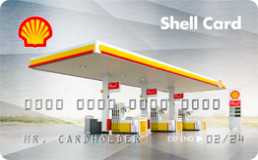
Do Rideshare Drivers Get Reimbursed for Fuel?
Do Uber and rideshare drivers get reimbursed for fuel? Since you’re a sole trader or independent contractor, you’re not technically entitled to things like company benefits like having your fuel paid for. Fuel is considered an operating expense you incur as an independent contractor and not Uber’s responsibility.
However, Uber recently released an Uber Pro rewards program, which does provide some drivers with fuel discounts. Uber Pro delivers a tiered loyalty approach across four reward categories – Blue, Gold, Platinum and our pinnacle Diamond status. Top-tier Diamond partners will score 12 cents per litre fuel discounts at more than 600 participating Caltex Star Mart and The Foodary locations in Australia. The introductory Blue tier can save six cents a litre at the petrol pump.
DiDi on the other hand has a partnership with 7-Eleven which offers drivers discounts of 5-10cpl, with a maximum of 2 discounted fuel transactions per day. This isn’t available with Fuel price Lock or Fuel Card transactions, however.
Uber used to have a Fuel Card Program, which was discontinued in 2018. However, they now have an Uber Visa Debit Card, which offers partners to save on fuel and more, but this program isn’t currently available in Australia.
Can Fuel and Other Vehicle-Related Expenses be Claimed on Tax?
The income you earn from driving for Uber or other rideshare apps is assessable income and must be reported in your income tax return. Expenses incurred in driving for Uber are tax-deductible, including expenses related to holding, maintaining or operating any assets used to provide the ride services. Deductions can be claimed for the business use proportion of the following:
- commissions, licensing or service fees paid to Uber.
- costs of becoming an Uber driver
- fuel
- tolls
- parking
- vehicle licensing or registration
- mobile phone bills
- safety equipment
- costs of cleaning, servicing and repairing the vehicle
- insurance
- tax agent/accountants fee
- bank fees (if you maintain a separate account for your Uber work)
There are two ways to claim a deduction for business use of your car:
- Cents per kilometre: Claim 72c per kilometre from 1 July 2020. You can only claim 5,000 kms using this method, even if you have travelled further.
- Logbook: Your claim is based on the business use percentage of each car expense, which is determined by a logbook that must have been kept for a minimum 12 week period. You can claim all expenses that relate to the operation of the car, at your percentage of business use, which is determined from your logbook.
Do You Need an ABN as a Rideshare Driver?
If you drive for a rideshare service like Uber, you must register for an ABN. Currently, rideshare drivers are considered independent contractors based on a range of factors. These include the driver’s ability to choose their own hours and personal ownership of the vehicle. As a rideshare driver, you are typically operating under a sole trader business structure and must register an ABN as a Sole Trader.
Do You Need to Register for GST?
As a rideshare driver, regardless of your income, you must account for GST on all earnings. This means even if you make $100 total as a driver, you will need to register for GST and declare the income on your tax return. Drivers are also entitled to a range of tax credits and can claim the expenses related to providing their rideshare services. If you want to register for Goods and Services Tax (GST), then you will need an ABN first.
Benefits of an ABN & Registering for GST
One clear benefit of registering for GST is the ability to claim back GST on purchases made in Australia. For every $110 of local purchases made it is likely you have paid $10 in GST, and would be eligible to claim this as a tax credit. To do this you need to be registered for GST. And to be registered for GST you need an ABN.
Why Tracking Fuel Expenses as a Rideshare Driver Matters
So as we’ve determined, you don’t really get a whole heap of fuel savings as a rideshare driver. And this is where a fuel card would certainly come in handy. Most people think the biggest benefit of a fuel card is to save on fuel expenses, and while some fuel card providers do offer great savings, this isn’t the true benefit of a fuel card.
The true benefit of a fuel card lies in its ability to keep track of your fuel expenses, which also helps you understand how well your car is running. This in turn can help keep overall car expenses lower, especially if you notice your car is consuming more fuel than normal, which might mean there’s an issue that needs fixing. And, because fuel cards automatically log your fuel receipts, it makes it much easier to submit a fuel reclaim come tax time, saving you time and money in tax admin each year.
Which Fuel Card is Best for Rideshare Partners?
Whether you’re a sole trader or a new business, the challenge for you when it comes to applying for a fuel card is that most fuel card providers require you to have an active ABN for at least 12 months to a year before applying. And sometimes if the fuel card provider doesn’t have a minimum requirement for time in business before applying, they’ll instead ask for a security deposit – which when you’re starting out as a sole trader – every dollar in your bank account counts.
The good news is there are sole trader/small business-friendly fuel cards out there which don’t have a minimum amount of time in business to apply, and don’t require a large bond. One of the best fuel card providers for sole traders is the Shell Card.
Other Ways to Pay for Fuel as a Rideshare Driver
Another way to pay for fuel as a driver/sole trader is via prepaid MasterCard or Visa cards. Prepaid cards can be an ideal choice for sole traders or small business owners who want to take charge of their business’s fuel expenses, without some of the obstacles associated with traditional fuel cards.
However, Mastercard and Visa prepaid cards aren’t specifically fuel cards, but rather can be used as an alternative to fuel cards. You can preload and continue to reload cards at any time. There are no fuel discounts, and no line of credit to help manage your cash flow.
The major benefit of using a prepaid card to pay for your business’s fuel expenses is for convenience, and to help you budget better. You can also use prepaid cards anywhere Visa or MasterCard is accepted. There are also no monthly card fees, which many fuel card providers have.
RELATED POST

